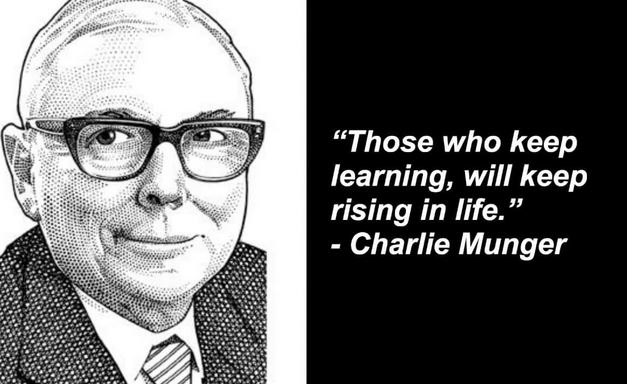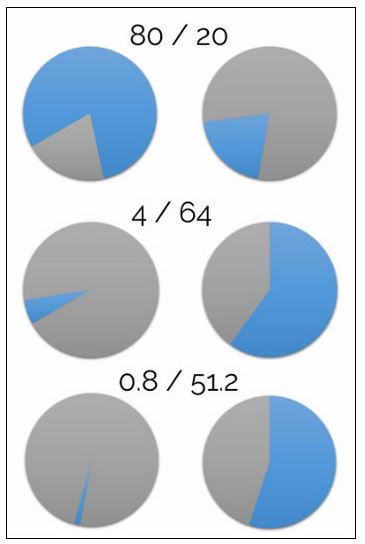The Metagame Approach To Life
How To Achieve Your Biggest Objectives

What Is The Metagame Approach To Life?
The metagame approach to life is all about winning and achieving your biggest objectives by:
- Understanding the bigger picture.
- Playing the game beyond the game.
- Redefining the game on your terms and creating your own path to success
- Being better by doing things differently.
- Making moves that others find hard to imitate or counter.
The metagame approach to life can be used in various different contexts which may include your career, your business, your education and personal development and even your personal relationships.
My personal view is that:
The Metagame - Defining Our Terms

Meta
The English word
Meta is derived from its Greek origin and is a prefix meaning "beyond", "more comprehensive" or "transcending".
Game
A Game is an activity or sport usually involving skill, knowledge, or chance, in which you follow fixed rules and try to win - usually against an opponent.
Metagame
The concept is attributable to John von Neumann and Oskar Morgenstern's game theory in 1944 and was further developed by political analyst and author Nigel Howard as a term, describing a strategy and an analytical technique for mitigating potential nuclear confrontation during the coldwar of the 1960s and 1970s.
It has also been adopted by professional poker players where the metagame is a psychological game among skilled players who make adjustments to their play based on how they think an opponent is likely to interpret a given set of actions.
In summary we can say that:
The metagame is the game beyond the game.
Single Player Game
There is one further important definition and that is the single player game.
As Naval Ravikant says:
"Life is a single player game. You’re born alone. You’re going to die
alone. All of your interpretations are alone. All your memories are
alone. You’re gone in three generations and no one cares. Before you
showed up nobody cared. It’s all single player."
How You Can Apply The Metagame In Your Life

One of the core themes of this site is how to think more effectively and this matters because, over the long term, the outcomes that you experience, and the quality of your life, is determined by how you respond to the events in your life.
Life is full of random events that are beyond your control, but the one thing you can control is how you choose to respond to these events - and it is a choice that can have a major effect on your health, wealth and happiness.
The metagame approach to life brings together a set of skills and resources that you can apply to not only live well but also to become the best version of yourself.
I have covered this subject from many different angles in a wide range of articles on this site, and in this article I am focusing on 3 key strategies that encompass material in many of those articles, so in a sense, this is a meta-article!
Here are my 3 strategies for applying the metagame approach to life.
- Play The Long Game
- Exploit The Hidden Margins
- Focus On The Fat Tail Fractal Factor
Each of these strategies are based entirely on my own life experiences and I am still applying these strategies very proactively in the business area of my life.
I am not interested in shooting the breeze and idle intellectual speculation. This is not about abstract ideas and concepts, this is about actions.
I do not write these articles nor maintain this website to entertain readers. I am only interested in sharing practical information that I have used and proven, and that is transformative.
I write for the one in a thousand readers who will apply these strategies and in so doing transform his or her life.
There is a supporting article for each strategy together with very specific action points illustrated by personal examples and illustrations together with links to a wide range of further resources.
At the end of this article there are links to further recommended reading.
[1] The Long Game - Delay Gains Now To Get More Later
We just hate to wait. We have a micowave mindset. We want what we want now!
Playing the long game is an instant differentiator because we are all hard wired for quick results and most of the time we are looking for a quick fix and instant gratification.
The long game describes an approach to any area of life that sacrifices short term gains for long-term wins.
It is about being prepared to make a lot of mistakes and errors and being prepared to look an idiot in the short term to look like a genius and make massive gains in the long term.
7 Proven Strategies For Playing The Long Game
- Adopt the Craftsman Mindset
- Attract Luck
- Focus On The One Right Thing
- Benefit From The Power Of Habits
- Compound Your Way To Exponential Growth
- Be Smarter Rather Than Faster
- Live an Antifragile Life
This is a rough, tough journey but the rewards are huge.
The long game is so hard to play because it involves taking a series of very small steps, that people rarely see, persistently and consistently over a long period of time to reach an enormous and visible outcome.
Ryan Holiday cites Hofstadter’s Law and observes that it always takes longer than you expect:
"Waiting is not the hardest part. It’s the not knowing when the waiting is going to end. But that’s life. That’s how success works.
It takes longer than you want. It takes longer than you expect. It takes longer than you’re willing to wait. In any case, it takes however long it takes."
Playing
the long game is doubly difficult when you are traveling on a road less
traveled that is not well defined, where the milestones and metrics are
not known when you start out on this journey.
Examples of the road less traveled are starting a business or any other form of entrepreneurial activity. Other examples could be launching any form of creative or artistic endeavour.
The Challenges Of The Road Less Traveled
[2] Exploit The Hidden Margins
This about identitying and benefiting from unrecognised opportunites for potential gain.
I want to introduce you to two concepts that may be unfamiliar:
A margin is the gap or space between 2 things.
In
the business sense, margin is your profit. Your margin is the difference between what you paid for something and the price you sold it for.
But not all margins are so easy to quantify. That they may be difficult to see or quantify does not mean that they are not valuable. Often these less visible [or intangible] margins represent big opportunites for gain. The key is knowing what to look for and how to turn it into a profit.
Tangible and Intangible Margin

Tangible Margin - refers to things that can be easily seen and quantified.
Examples of tangible margin can include things such as: how much money you can save on your household expenditure measured against a fixed income; or how much time you allow when setting off to catch a flight; or how much time and flexibility you allow in your day between scheduled tasks and activities.
- Tangible margin is easy to quantify and express and is objective.
- Tangible margin is measured in facts and figures.
Intangible Margin - refers to things that are not immediately obvious or visible and are hard to quantify.
- Examples of intangible margin are: perceptions and expectations, feelings and experiences, slack and space.
- Intangible margin is hard to quantify and express, and is subjective.
- Intangible margin is measured in value - the value that someone or some group place upon it.
Our focus is on intangible margin because that's where the big potential gains are to be found.
Primary and Secondary Currency

Currency is how we measure the value of a margin.
Primary currency - is measured in facts, figures and money, and is an objective measure.
- Primary currency can only be applied to tangible margins i.e. that which can be seen and measured.
Secondary Currency - is anything that has high perceived non-monetary
value and importance to a specific individual or group of individuals, and therefore is subjective.
- Secondary currency is applied to intangible margins
and is hard, and often impossible, to see and can only be measured by
those in receipt or possession of it. Because it is based on value, it
is subjective.
- Examples of secondary currency are reputation, trust, honour, recognition, respect, influence,
space, freedom, peace of mind
- Secondary currency can also include the transfer of intangible assets such as skills, knowledge and intelligence/information
There is a very interesting and profitable interplay between primary and secondary currency and how one can be leveraged to greatly increase the other.
Our focus is on understanding, identifying and leveraging secondary currency because that's where the big primary currency benefits are to be found.
We will go into this in more depth and I will share some personal illustrations here.
We have to know where to look for these intangible margins, how to position ourselves to find them and how to apply some very simple questions that will help us learn how to benefit from the unseen margins.
5 Key Tips On How To Benefit From The Unseen Margins
The common theme in each of the following tips is to ask questions and be curious.
The following tips are questions that I have found to be useful in my ongoing quest to learn more about how to benefit from the unseen margins and positioning myself to be take advantage of them.
- How Can I add Value To This Person Or This Situation?
- How Can I Leverage This Situation For Future Advantage?
- Who Is This Affecting And How Is It Affecting Them?
- What Are They Measuring, Where Are The Gaps And What Are They Missing?
- What Is The Bigger Picture Here - Who Stands To Gain/Lose And Why?
3 Guiding Principles On How To Benefit From The Unseen Margins
- Understand Your Currencies And The Relationship Between Them
- Prepare For The Unexpected
- Work With Probability
[3] Focus On The Fat Tail Fractal Factor
We are all familiar with the 80/20 rule [also know as the Pareto Principal]
which basically means that as a general observation 80% of your results
come from 20% of your efforts.
What you may not know, and I certainly didn't, is that that the 80/20 rule can be applied to itself - that's what the fractal factor means.
So 20% of your 20% best efforts [i.e. 4%] will deliver 64% of your best results. This is illustrated in the second line of the graphic above.
And the 80/20 rule can be applied to this 4% so 20% of that 4% [i.e. 0.8%] will deliver 51.2% of your best results. This illustrated in the third line of the graphic above.]
So in very simple terms this means that:
1% of your efforts and resources can deliver over 50% of your results!
The challenge lies in finding that key subset of your productive 20%.
- Focus on Quality Not Quantity
- Attract Luck - Be The Best At What You Do
- Hunt With A Rifle Not A Shotgun
- Accept the Failure Rate

Third Party Resource
A reader has suggested and recommended that I include "The Blue Ocean Strategy" as another way of playing The Metagame.
I agree and here it is:
Further Reading
Understanding Complex Systems Thinking - It's Not Complicated
How To Be A Winner - The Incredible Benefits Of Selective Attention
Why Understanding Ergodicity Is Critical To Your Long Term Survival
How Positive Asymmetry Can Transform Your Life
Finding Signal In The Noise - How To Avoid The Noise Bottleneck
Growth Mindset - How To Be There When Preparation Meets Opportunity
The Art Of Thinking Clearly - How To Do More Than Just Survive And Reproduce
The Qualities Of Finite And Infinite Games
Return from: "The Metagame Approach To Life" to:
Inner Mastery For Outer Impact or Walking The Talk
LATEST ARTICLES
The Inner Weight of Shame - Sustained By Attentional Fixation
 A Mind That Is Continuously Engaged In Self-Surveillance. Shame is one of the heaviest inner burdens a human being can carry. It does not announce itself loudly or demand attention through drama. Inst…
A Mind That Is Continuously Engaged In Self-Surveillance. Shame is one of the heaviest inner burdens a human being can carry. It does not announce itself loudly or demand attention through drama. Inst…Does Prayer Work? The Psychology of Prayer, Meditation and Outcomes
 Reality Is A Complex System Of Countless Interactions - Including Yours. So does prayer work? The problem is that the question itself is usually framed in a way that guarantees confusion. We tend to a…
Reality Is A Complex System Of Countless Interactions - Including Yours. So does prayer work? The problem is that the question itself is usually framed in a way that guarantees confusion. We tend to a…Living in Survival Mode Without Surrendering Mental Authority
Living in Survival Mode Without Surrendering Mental Authority
 Clear Thinking When You’re Just Trying to Stay Afloat. Many people today are overwhelmed because they are living in survival mode - not temporarily, but as a persistent condition of life. For many, th…
Clear Thinking When You’re Just Trying to Stay Afloat. Many people today are overwhelmed because they are living in survival mode - not temporarily, but as a persistent condition of life. For many, th…Manifestation Without Magic: A Practical Model
 Manifestation without magic is not a softer or more intellectual version of popular manifestation culture. It is a different model altogether. Popular manifestation teachings tend to frame reality as…
Manifestation without magic is not a softer or more intellectual version of popular manifestation culture. It is a different model altogether. Popular manifestation teachings tend to frame reality as…Staying Committed When You Can't See Progress - The Psychology of Grit
 Uncertainty Is Not The Absence Of Progress, Only The Absence Of Reassurance. One of the most destabilising experiences in modern life is not failure, but uncertainty and staying committed when you can…
Uncertainty Is Not The Absence Of Progress, Only The Absence Of Reassurance. One of the most destabilising experiences in modern life is not failure, but uncertainty and staying committed when you can…The Battle For Your Mind - How To Win Inner Freedom In A Digital Age Of Distraction
 From External Events to Inner Events. We often think of “events” as things that happen out there: the traffic jam, the rude comment, the delayed email reply. But what truly shapes our experience is wh…
From External Events to Inner Events. We often think of “events” as things that happen out there: the traffic jam, the rude comment, the delayed email reply. But what truly shapes our experience is wh…How to See Your Thoughts Without Becoming the Story
 A Practical Guide to Thought-Awareness. You can spend your life inside the stories of your mind without ever learning how to see your thoughts clearly and objectively. Most of the stuff we tell oursel…
A Practical Guide to Thought-Awareness. You can spend your life inside the stories of your mind without ever learning how to see your thoughts clearly and objectively. Most of the stuff we tell oursel…The Collison Decision Matrix - A Simple Framework for Better Choices
 The Collison Decision Matrix Is A Practical Everyday Thinking Tool. Most of us spend a surprising amount of time worrying about decisions. From small ones such as what to wear, what to eat, what to te…
The Collison Decision Matrix Is A Practical Everyday Thinking Tool. Most of us spend a surprising amount of time worrying about decisions. From small ones such as what to wear, what to eat, what to te…The Power Of Asking The Right Question
 The Power Of Asking The Right Question Lies In The Quest For Insight. To experience the power of asking the right question you must develop the practice of asking questions. The best way to improve th…
The Power Of Asking The Right Question Lies In The Quest For Insight. To experience the power of asking the right question you must develop the practice of asking questions. The best way to improve th…Site Pathways
 Here is a site pathway to help new readers of Zen-Tools navigate the material on this site. Each pathway is based around one of the many key themes covered on this site and contain a 150 word introduc…
Here is a site pathway to help new readers of Zen-Tools navigate the material on this site. Each pathway is based around one of the many key themes covered on this site and contain a 150 word introduc…How To Live With Contradiction - Beyond Thought Let Stillness Speak
 A major impact on so many peoples' lives is the situational contradiction of unfilled realistic expectations. So where does all this leave us? Well here we are, with mental equipment that is more lim…
A major impact on so many peoples' lives is the situational contradiction of unfilled realistic expectations. So where does all this leave us? Well here we are, with mental equipment that is more lim…


